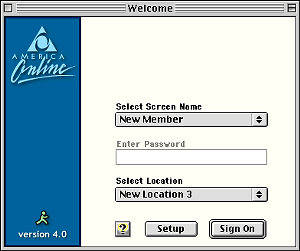The Media Oxpecker: How Long Will the AOL/HuffPo Cash Spigot Stay Open?
june 10, 2011 02:24 pm

THIS STILL GENERATES 40% OF AOL'S CA$H MONEY
Every Friday we round up media & tech industry news you may have missed while you were busy winning the week.
This week's must read comes from Jeff Bercovici at Forbes,
who revisits AOL's acquisition of the Huffington Post and asks whether the union of AOL CEO Tim Armstrong and force of nature Arianna Hufington will work out:
. . . Armstrong’s big coup could also be AOL’s eventual undoing. In hitching himself to Huffington, he has signed on to a mission and an agenda that go well beyond his mandate of re-creating value for shareholders. He has also tied himself to somebody who has demonstrated that she puts her own interests ahead of those of her partners. At HuffPo she repeatedly jousted with her fellow board members, whom she saw as stifling her ambitions to build a news operation to rival the New York Times.
The main challenge for the company, Bercovici says, will be raising enough display ad revenue to offset losses from AOL's rapidly declining internet-access business, which still accounts for 40% of the company's revenues and has allowed Armstrong to toss "plenty of free cash" to Arianna. He says the ISP revenue will last two to three more years, meaning display ad sales will have to grow by 20% annually in order to keep pace.
If display ads underperform, Armstrong will be forced to pull the plug on Arianna's cash spigot.
Apple unveiled its iCloud service on Monday, prompting Slate's Farhad Manjoo to ask if Apple finally "gets the web":
In many ways, though, iCloud is less forward-looking than tail-chasing—a belated response to Google's cache of free Web tools. Now your iPhone, iPad, and iPod Touch will automatically sync your e-mail and calendar across your devices, instantly, over the Internet. Yippee!—but I've been able to do that on Android phones, or even on my iPhone using Google's services, for years. This explains part of Apple's motivation here. Android devices are selling well, and Apple is desperate to keep the iPhone and iPad ahead.
Meanwhile, Apple is backing down on its iPad/iPhone rules for publishers, namely, that the company gets a 30 percent cut and its subscription service must be used. Now "companies can sell the subscriptions on their own Web site at any price they choose, and still offer them through apps on Apple devices."
Last month was a good one for news sites:
In May, a perfect storm of Internet-ready news — the killing of Osama bin Laden, with a dog angle, followed by a panoply of video and slideshow-ready natural disasters stories — drove many news sites to record-high traffic numbers. Slate (15.8 million unique visitors), The Atlantic (10 million), Foreign Policy (2.9 million), The Week (1.86 million) and The New Yorker (3.7 million) all recorded their best month ever in May 2011, according to their internal Omniture stats.
Online ad spending is expected to increase 20% to $31.3 billion in 2011, eMarketer predicts.
A new size and shape for newspapers is on the horizon:
A new press system that would produce a compact, sectioned print edition has been on the market for nearly three years now. So far, there have been no takers (and that’s a story in itself). But industry sources tell me that the considerable potential savings and punishing newsprint price increases will lead to the adoption of so-called “three-arounds” in at least a few places by the end of the year.
Frédéric Filloux analyzes paywall systems and says that coming up with the right setting—how many free stories will be allowed before hitting the paywall, and how much to charge for access—is complex, but far from trivial.
Do "Read It Later" apps such as Instapaper, Flipboard and Readability constitute theft? A man says yes! Related: Flipboard has quadrupled its traffic, now reaching 400 million "Flips" per month.
DocumentCloud—whose two-year Knight News Challenge funding is expiring—will now be run by IRE.
Minority kids spend most of their waking hours plugged in.
Here's Simon Owens on how CNN is trouncing its competitors on the web.
Can 'viral' be bought?
The UK’s Advertising Standards Authority says Groupon is guilty of "breach[ing] its rules on misleading advertising, substantiation, exaggeration, administration, pricing and qualification."
Newspaper Association of America President and CEO John Sturm announced that he will retire later this year.
Is online news destroying local reporting? A recent FCC report cites a lack of local news, and at the same time, doesn’t support any major government initiative to correct the situation.

